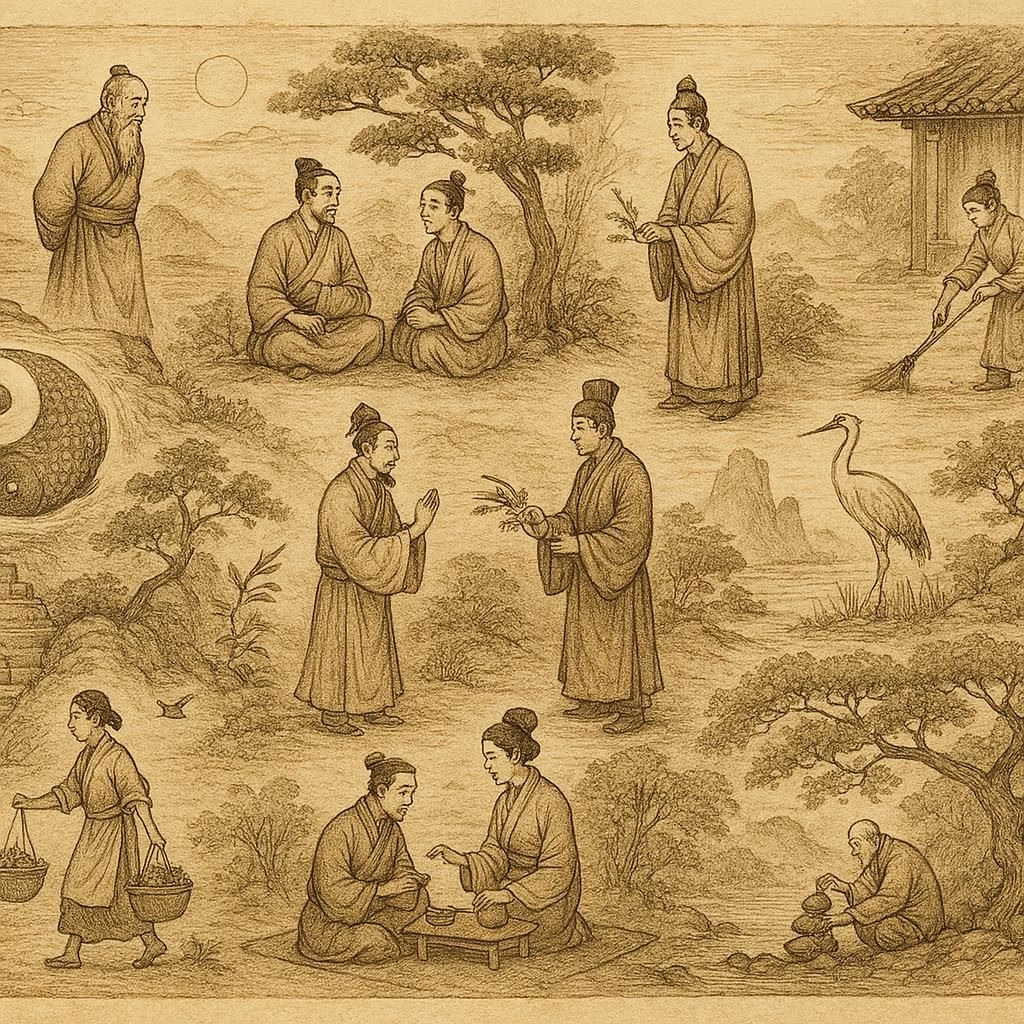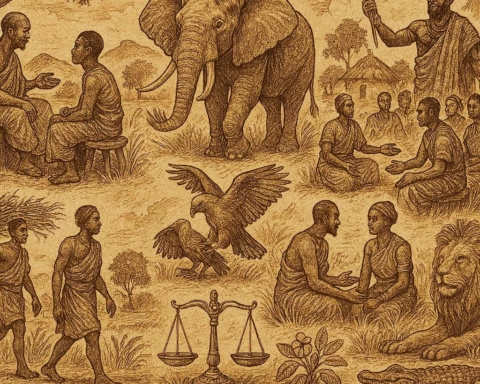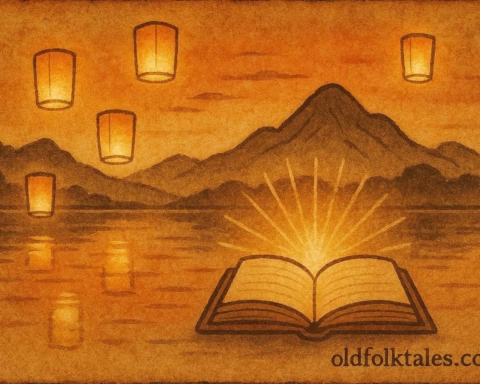In the heart of East Asia, across China, Japan, and Korea, proverbs have long served as the distilled wisdom of countless generations. They are not mere phrases but guiding lights, carrying lessons on how to live in harmony with oneself, others, and the world.
The following ten proverbs speak to the ideals of balance, harmony, and good conduct, values that have shaped East Asian thought for centuries.
“The reed that bends survives the storm.”
This Chinese proverb teaches the value of flexibility. In nature, the reed endures because it sways with the wind rather than breaking. In life, those who adapt to changing circumstances preserve both their integrity and their survival.
“One kind word can warm three winter months.”
A Japanese saying reminding us of the power of kindness. Even in harsh times, a gentle word can bring comfort that lasts long beyond the moment it is spoken. In villages where winters were long and food was scarce, kindness was as essential as warmth itself.
“Even the tallest tower starts from the ground.”
Of Chinese origin, this saying underscores the necessity of humility and patience in achievement. Just as a great pagoda must begin with a single brick, a life of honor is built through daily acts of good conduct.
“When there is harmony in the home, there is order in the nation.”
A Confucian principle found in Chinese and Korean tradition, this proverb connects personal conduct to societal stability. Peace in the smallest unit, the family, spreads outward to the largest. It was a reminder to rulers and commoners alike that governance begins at home.
“The wise hawk hides its talons.”
A Japanese proverb encouraging modesty in one’s strengths. True wisdom is not in showing power at every opportunity, but in using it only when necessary. It warns that arrogance invites unnecessary conflict.
“Do not draw the bow without an arrow.”
Of Chinese origin, this phrase urges preparedness and sincerity. An empty bow threatens but cannot act; in human affairs, false posturing without intention is both dishonorable and dangerous.
“The person who moves a mountain begins by carrying small stones.”
Deeply rooted in Chinese philosophy, this proverb emphasizes perseverance. Grand tasks are accomplished through consistent small actions, a lesson in both balance and patience.
“If you chase two rabbits, you will catch neither.”
Common in both Japanese and Korean tradition, this warns against divided focus. A harmonious life requires clarity of purpose, too many pursuits will scatter energy and yield nothing.
“Silence is a source of great strength.”
From Chinese Taoist thought, this teaches that quietness fosters inner balance. Just as a still pond reflects the moon clearly, a calm mind perceives truth without distortion.
“Good conduct is a treasure no thief can steal.”
A Korean proverb reminding that material wealth is fleeting, but moral character endures. It ties the value of honor and integrity to a treasure that can only be lost by one’s own actions.
Cultural Origins
These proverbs come from the intertwined traditions of China, Japan, and Korea, civilizations whose philosophies have been shaped by Confucian ethics, Taoist balance, and Buddhist mindfulness. From rice-farming communities to imperial courts, these sayings have been carried in poems, parables, and family teachings for centuries.
While the imagery may differ, a reed in China, a hawk in Japan, a winter season in Korea, the essence is shared: life must be lived in balance, with harmony in relationships and discipline in conduct. These values have ensured social cohesion, personal resilience, and respect for nature in East Asian societies.
Knowledge Check
1. What is the meaning of “The reed that bends survives the storm”?
It means adaptability and flexibility help one endure hardships.
2. How does “One kind word can warm three winter months” reflect Japanese culture?
It shows the value placed on kindness and emotional warmth during difficult seasons.
3. Why is “When there is harmony in the home, there is order in the nation” important?
It links family harmony to broader social and political stability.
4. What lesson does “If you chase two rabbits, you will catch neither” teach?
It warns against pursuing multiple goals at once, emphasizing focus.
5. How does “Good conduct is a treasure no thief can steal” relate to moral values?
It reminds us that integrity and honor are lasting assets.
6. Which philosophies influenced many East Asian proverbs?
Confucianism, Taoism, and Buddhism shaped much of the moral guidance in these sayings.














